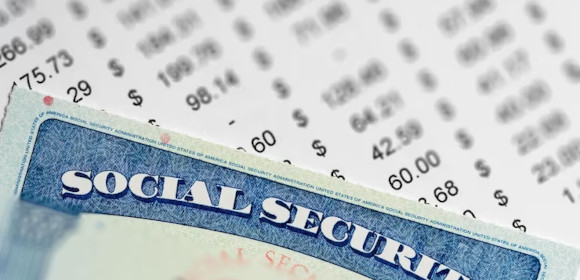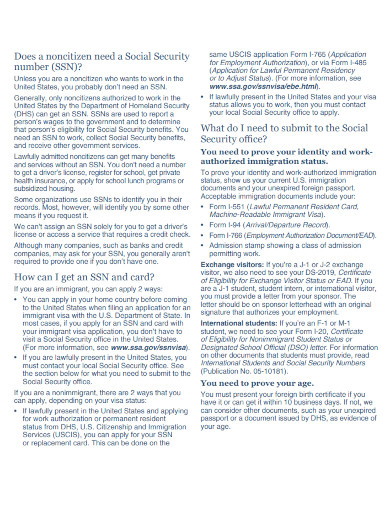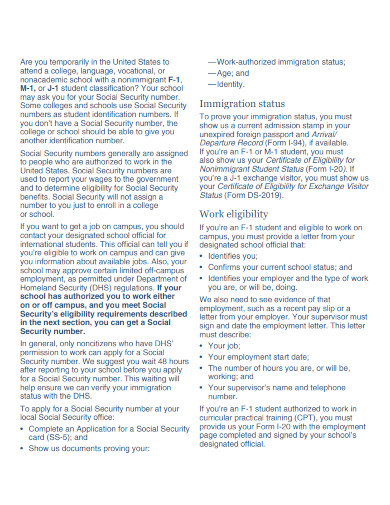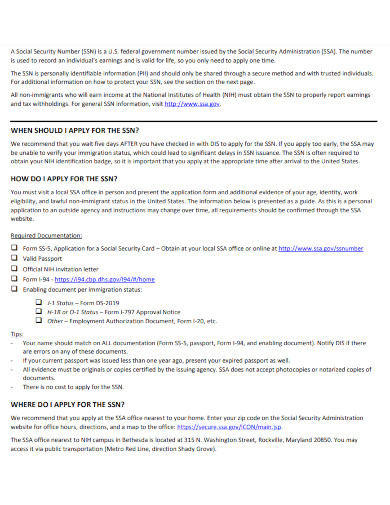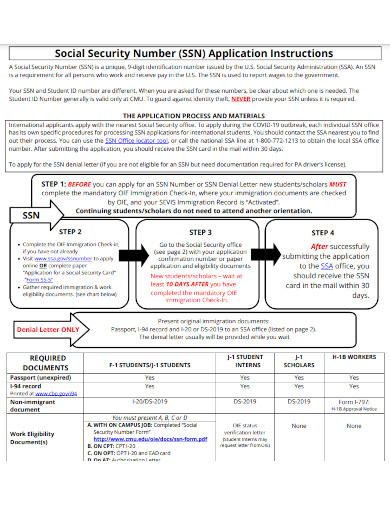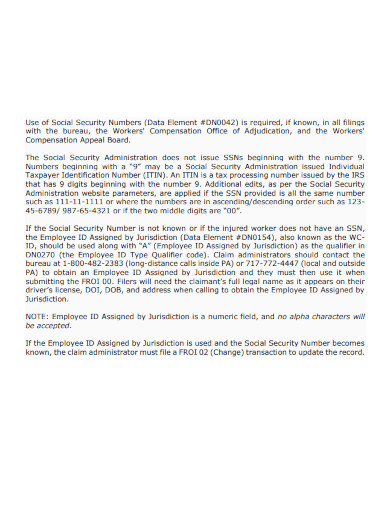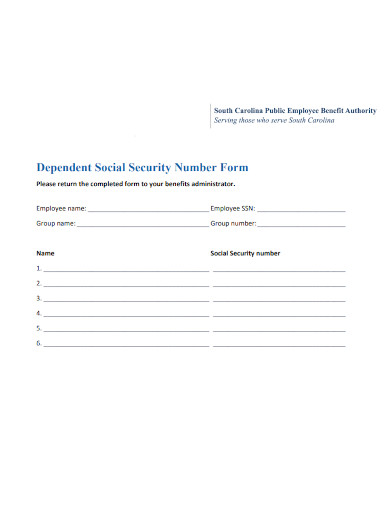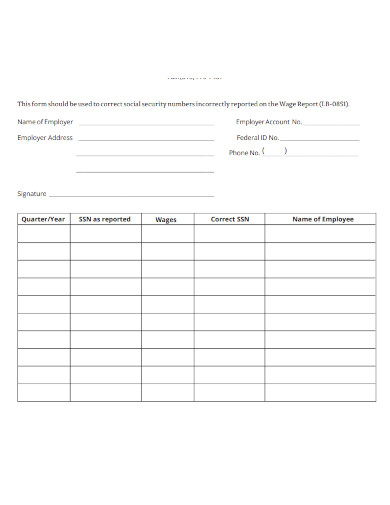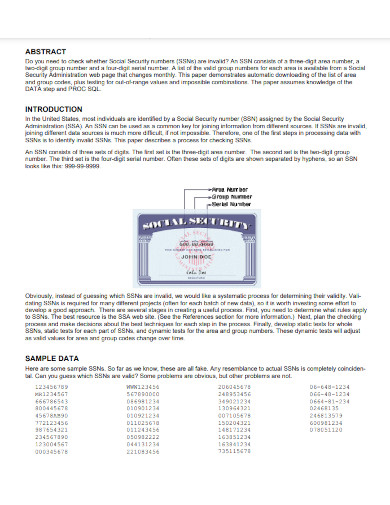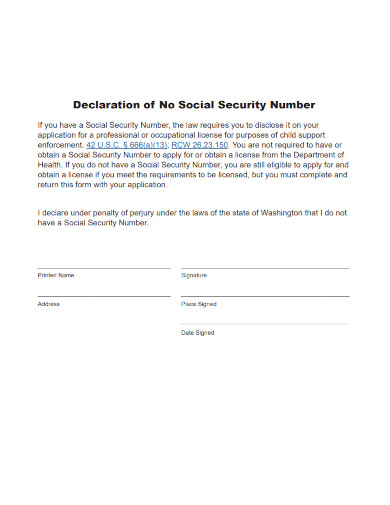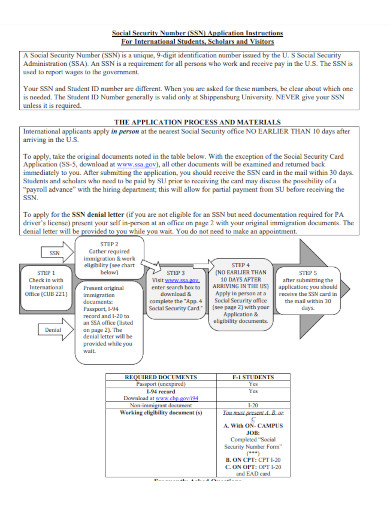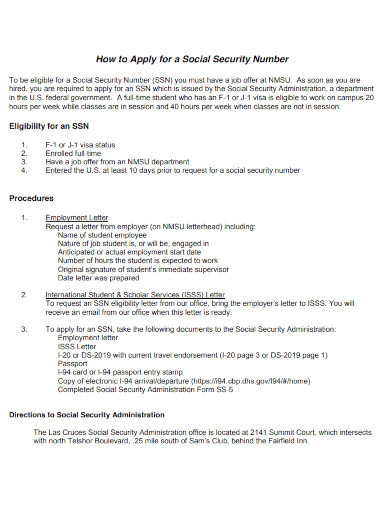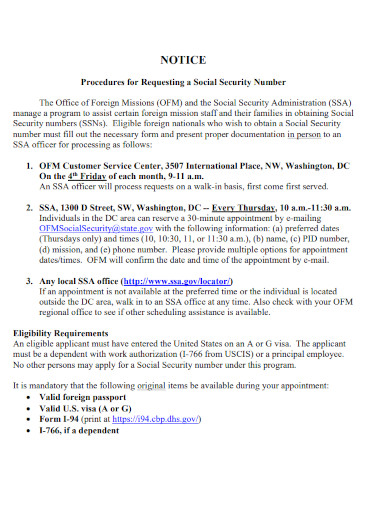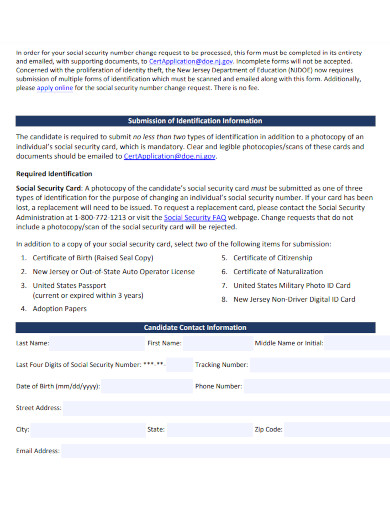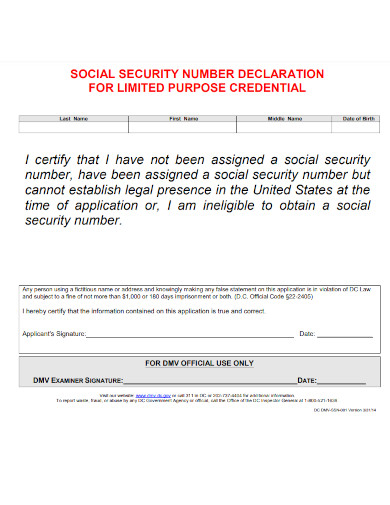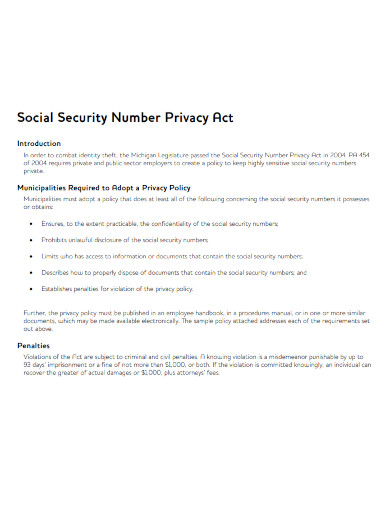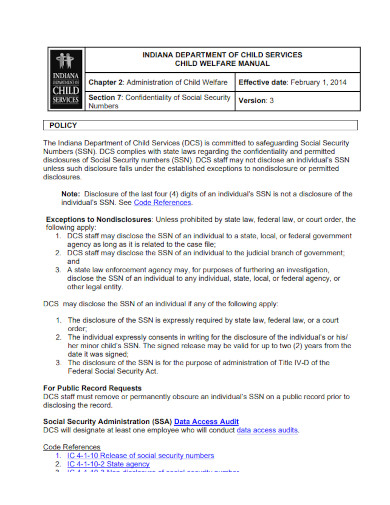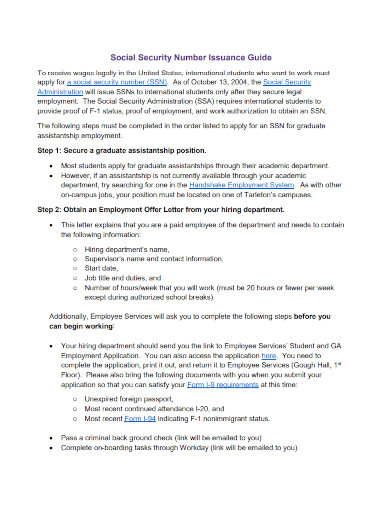19+ Social Security Number Examples to Download
Like a secret code to access important information, government social security numbers provide a key to unlocking financial benefits and services for millions of Americans. It’s a unique identifier that has become an essential part of our lives, but have you ever stopped to wonder how it all works? Let’s peel back the layers and delve into the fascinating world of social security numbers, from their origins to the application process.
1. Meaning of the Social Security Number
2. Social Security Numbers for Noncitizens
3. International Students and Social Security Numbers
4. Social Security Numbers for Children
5. Social Security Number Information
6. Social Security Number Application Instructions
7. Use of Social Security Numbers
8. Social Security Numbers and Cards
9. Dependent Social Security Number Form
10. Social Security Number Correction
11. Identifying Invalid Social Security Numbers
12. Declaration of No Social Security Number
13. Social Security Number Application Instructions
14. Apply for a Social Security Number
15. Procedures for Requesting a Social Security Number
16. Social Security Number Record Change Request Form
17. Social Security Number Declaration Form
18. Social Security Number Privacy Act
19. Confidentiality of Social Security Numbers
20. Social Security Number Issuance Guide
What is a Social Security Number?
A Social Security Number (SSN) is a nine-digit identification number that is issued to U.S. citizens, permanent residents, and some non-immigrant residents by the Social Security Administration (SSA). The purpose of the SSN is to track individuals for Social Security and other government benefits, as well as for taxation and other purposes. Your SSN is unique to you and is used by many government agencies, financial institutions, and employers as a way to verify your identity. It is important to protect your SSN and only share it with trusted parties, as it can be used to commit identity theft and other fraudulent activities.
How to get a Social Security Number
In the United States, you can obtain a social security number (SSN) by following these steps. Note that if you are applying for an SSN for a child, the process may be slightly different. You can find more information on the SSA website.
Step 1: Determine if you are eligible for an SSN.
Generally, you must be a U.S. citizen, a permanent resident, or have a valid nonimmigrant visa to apply for an SSN.
Step 2: Gather the necessary documents.
You will need to provide proof of your identity, age, and U.S. citizenship or lawful status. Examples of acceptable documents include a U.S. passport, a birth certificate, and an immigration document such as an I-551 card.
Step 3: Complete the SSN application form.
You can download the form from the Social Security Administration (SSA) website or obtain it from your local SSA office.
Step 4: Submit your application and documents to the SSA.
You can submit your application in person at your local SSA office, or you can mail it in.
Step 5: Wait for your SSN to be processed.
It typically takes two to four weeks to receive your SSN card in the mail envelope.
FAQs
How do I apply for a Social Security Number?
To apply for a Social Security Number, you must complete an application form, provide documentation of your identity, age, and citizenship or immigration status, and submit your application to the Social Security Administration. You can apply in person at your local Social Security office or by mail.
Is a Social Security Number permanent?
Yes, your Social Security Number is a permanent identification number that is assigned to you for life. It cannot be changed or replaced except in certain circumstances, such as in cases of identity theft or fraud.
Can my Social Security Number be used for identity theft?
Yes, your Social Security Number can be used by identity thieves to open new accounts, apply for loans, and commit other types of fraudulent activities. It is important to protect your SSN and only share it with trusted parties. You should also monitor your credit report regularly to detect any unauthorized activity.
In conclusion, a Social Security Number is a unique identifier that is assigned to U.S. citizens, permanent residents, and some non-immigrant residents by the Social Security Administration. It serves as a means of tracking an individual’s earnings and contributions to the Social Security system, as well as for taxation purposes and accessing various government benefits. While an SSN is a permanent identification number, it is important to protect it from identity theft and other fraudulent activities. By being vigilant and taking necessary precautions, you can safeguard your SSN and ensure that it is used only for authorized purposes.


